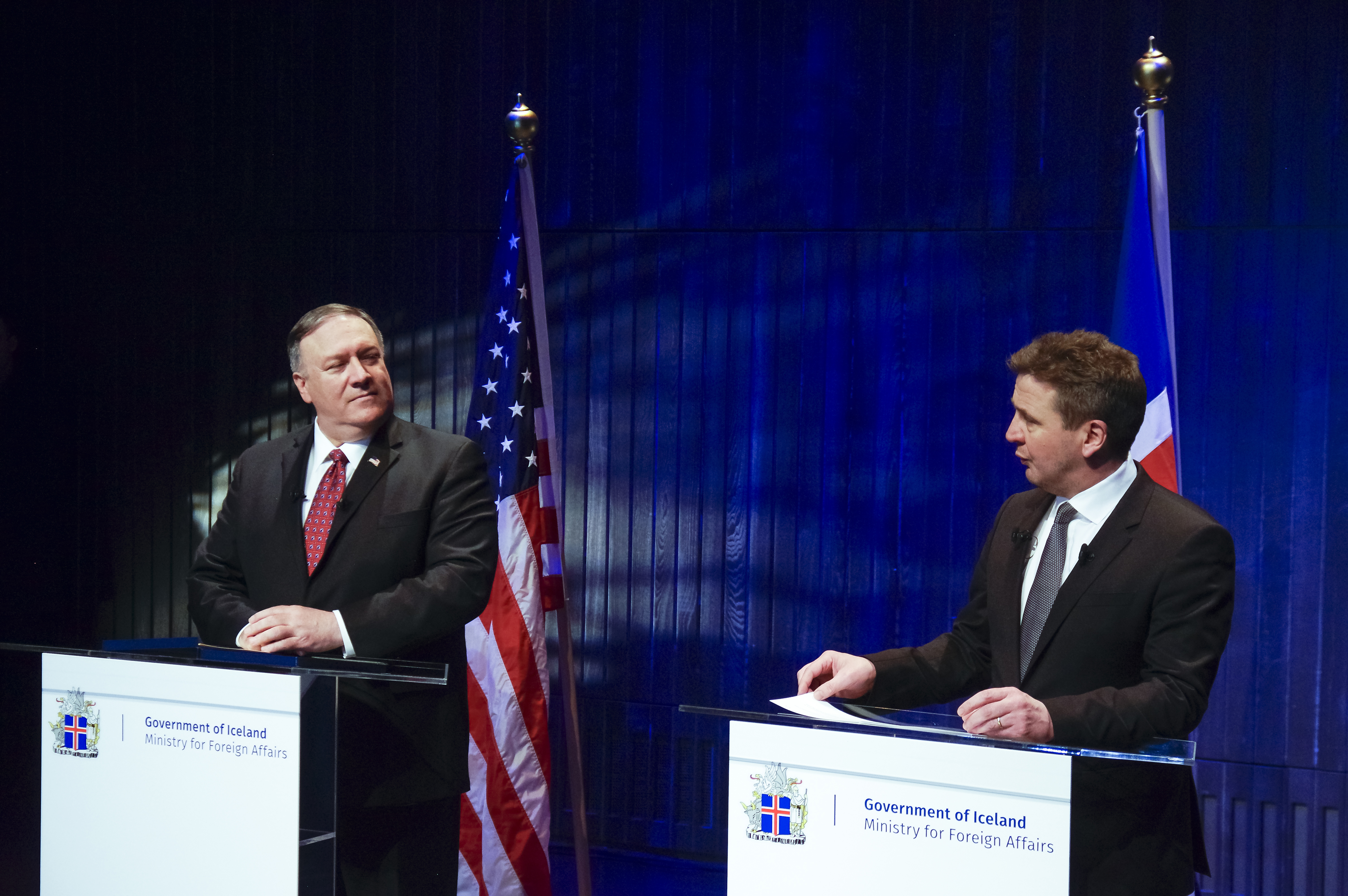U.S. and Iceland boost trade ties, discuss Arctic security
Iceland-U.S. relations offer "still unrealized potential," said Icelandic Foreign Minister Gudlaugur Thor Thordarson.

REYKJAVIK — The United States and Iceland have agreed to set up formal economic channels to boost trade and business investment, the countries’ top diplomats said on Friday.
U.S. Secretary of State Mike Pompeo visited the NATO ally in the North Atlantic on Friday, also to discuss security relations and China and Russia’s growing presence in the Arctic.
“We have now established an economic dialogue between our two nations which I think will bear fruit quickly,” Pompeo said at a press conference.
His visit comes amid increased interest in the Arctic, which has big reserves of oil, gas, gold, diamonds, zinc and iron.
With global warming melting polar ice, it may offer world powers new shipping routes — and naval interests — for trade between Asia, Europe and America’s east coast.
He said it was still unclear whether boosting economic ties could be done through a formal trade agreement “which if accomplished would be a really good outcome,” or whether they would come from a set of common understandings to cut costs or reduce barriers.
“There is still unrealized potential in trade and our commercial relationship,” Icelandic Foreign Minister Gudlaugur Thor Thordarson said at the common press meeting.
“We are very excited to take this important step … and we should try and do it as quickly as possible,” he added.
Strategic place
Iceland sits in a “strategic place in the world”, Pompeo said during his visit. Asked how the United States planned to counter China and Russia’s increased presence in the Arctic region, he said:
“You find friends and allies in the region and you work alongside them, and you show up and you have serious discussions with them about how to approach it.”
Pompeo said that the United States “deeply understands the geo-strategic challenges” that exist in the Arctic and the risks that are there.
“We have watched America’s adversaries begin to deploy assets in a way that they believe will strategically disadvantage not only the United States, but Iceland and the European countries as well,” he said.
“We know that when America retreats nations such as China and Russia will fill the vacuum. It’s inevitable when we’re not there,” he said.
Pompeo said he was very confident the cooperation between the United States and Iceland would achieve outcomes.
“I look forward to being part of this as Iceland takes over the Arctic Council, determining how and where to best deploy assets, not just military, but all of the assets,” he said.
Iceland assumes the two-year rotating chairmanship of the Arctic Council in May. It comprises Canada, Finland, Iceland, Norway, Russia, Sweden, the United States and Denmark, all of which have territory inside the Arctic Circle.
Referring to increased competition in the Arctic region, foreign minister Thordarson said it was important that the Arctic remain a “peaceful, low tension area.”
The organization, which coordinates Arctic policy, is gaining clout as sea ice thaws to open up new trade routes and intensify competition for its as yet undiscovered oil and gas reserves.
Additional reporting and writing by Teis Jensen in Copenhagen.